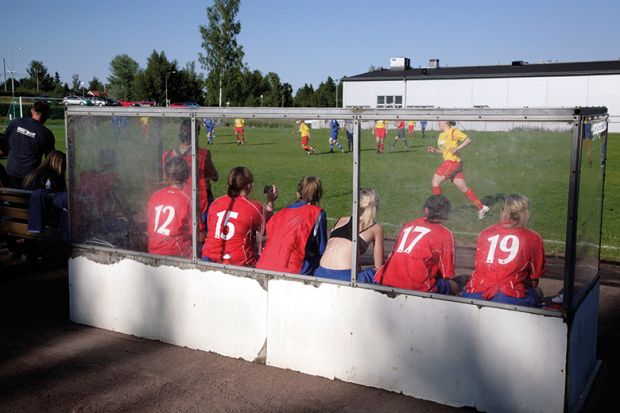Top teachers at research-intensive universities are not seeing their passion for and commitment to their work matched by their institutions, according to new research.
The findings of the US study, which drew on interviews with award-winning teaching faculty, point to a series of challenges that teaching staff must overcome to succeed in such universities.
These include the shortage of time for course preparation, marking, planning and development, the lack of recognition for their efforts and the effect of emerging technology on student attitudes – all of which suggests that research-intensive universities lack the policies to support teaching in the same way that they do for research.
Carolyn Mitten, doctoral fellow, and Dorene Ross, professor emeritus, both at the University of Florida’s College of Education, interviewed 10 teaching staff who had won undergraduate teacher of the year accolades at a large US research-intensive institution about the challenges they face.
All those interviewed said that despite their success in teaching, they were not given sufficient time to develop new courses, plan teaching, write assessments and provide feedback.
“The university credits 10 hours of prep/grading/meeting time per course per week, yet faculty who care deeply about their teaching emphasized the actual time spent was much greater and required time outside of the regular workweek,” the researchers write in Studies in Higher Education.
The interviewees felt that the time they put into their teaching work was “not recognized or compensated by the university”, they add. Many said that the provision of teaching assistants to help ease their workloads was still a “stressor” because of the training that they were required to give them.
“Having a teaching assistant is a tremendous benefit, but it does place additional responsibility on the faculty member,” Professor Ross told Times Higher Education.
“It is challenging for the faculty member because they are working with someone who is less experienced,” she said. “They feel the need to be mentoring the graduate student in teaching.”
Professor Ross and Ms Mitten found that the immediacy of new technology also had an effect on student engagement while learning.
“In interactions with faculty, students expect instantaneous communication and feedback. In the classroom, immediacy translates to a lack of perseverance in problem-solving and thinking independently,” they write.
The interviewees also highlighted how important research was to the institution. “The emphasis placed on research also impacts participants’ beliefs that teaching is not valued,” add the authors.
Participants were “acutely aware” of the fact that getting tenure, promotions, merit reviews and salary increases depended on securing research funding, say Ms Mitten and Professor Ross.
“The importance of teaching may be acknowledged, but faculty members know research carries heavier weight in important decisions,” they write.
Abel Nyamapfene, a senior teaching fellow in the Faculty of Engineering Science at University College London, said that the divide between teaching and research meant that being an academic was no longer about being part of a community.
“If you look back at the literature, 15 to 20 years ago when you became an academic you became part of a community. If you look at research-intensive departments [now], you have clearly defined research staff…on one side and those that deal with undergraduates on the other,” he said.
Once an academic finds themselves on the teaching side of the divide, it is very difficult to return to research, he added. Although teaching staff can still do research, they do not get time allocated to do so, he said.
Another UK-based teaching expert said that although universities may have policies in place to support teachers, the reality is that many do not apply them.
Chris Cane, director of taught postgraduate programmes at the University of Leicester, who has previously looked at the teaching policies of universities in the UK and Australia, said: “Most universities now have some sort of policy which on the face of it recognises teaching, but in reality it is often very much second fiddle to research.”
The terms and conditions for teaching-focused staff are different from those for research staff, he added. Teachers might be offered term-time-only contracts, for example, and might find it difficult to secure a sabbatical.
Preparation for teaching is also undervalued, he said. Workload models for teaching are usually itemised down to how many minutes teachers must spend marking each exam script, a level of detail not applied to research activities, said Dr Cane.
“That underlines the management view that [teaching is] a service rather than something that has its own intrinsic value,” he said.
POSTSCRIPT:
Print headline: Research-intensives fail to reward top teachers
Register to continue
Why register?
- Registration is free and only takes a moment
- Once registered, you can read 3 articles a month
- Sign up for our newsletter
Subscribe
Or subscribe for unlimited access to:
- Unlimited access to news, views, insights & reviews
- Digital editions
- Digital access to THE’s university and college rankings analysis
Already registered or a current subscriber? Login









